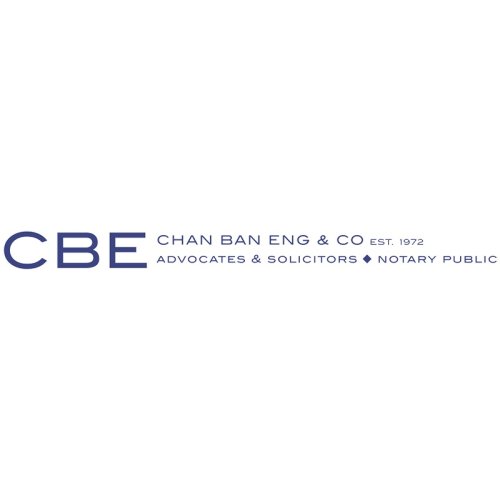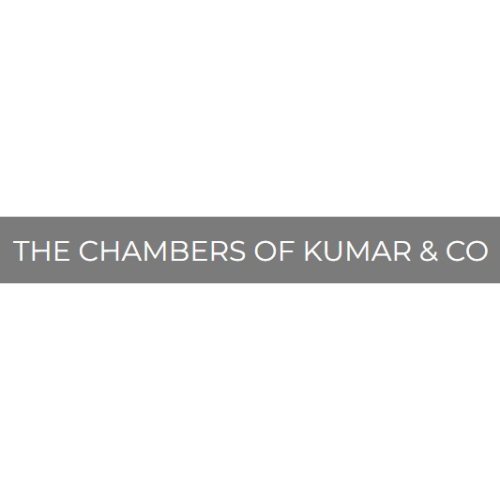Best Structured Finance Lawyers in Malaysia
Share your needs with us, get contacted by law firms.
Free. Takes 2 min.
Or refine your search by selecting a city:
List of the best lawyers in Malaysia
About Structured Finance Law in Malaysia
Structured Finance refers to complex financial transactions designed to manage risk and facilitate capital flow, often through pooled assets and securities backed by those assets. In Malaysia, structured finance plays a vital role in corporate fundraising, asset securitization, project finance, and risk management. With a well-developed legal and regulatory environment, Malaysia supports various structured finance activities including asset-backed securities, sukuk (Islamic bonds), and syndicated lending. The country’s progressive efforts in Islamic finance have also contributed to a robust and dynamic structured finance market.
Why You May Need a Lawyer
The intricate nature of structured finance means that legal expertise is often essential. You may need a lawyer if:
- You are issuing or investing in structured financial instruments such as asset-backed securities or sukuk.
- Your business is considering a large project and is exploring project finance options.
- You need assistance with regulatory compliance concerning Bank Negara Malaysia, Securities Commission Malaysia, or Bursa Malaysia rules.
- You are involved in transfer or securitization of assets like receivables, mortgages, or leases.
- You are negotiating syndicated loans or participating in cross-border transactions.
- There are disputes or enforcement actions related to structured finance agreements.
- You need guidance on taxation or Islamic finance structuring issues.
Local Laws Overview
Structured Finance in Malaysia operates within a robust legal and regulatory framework. The key aspects include:
- Securities Commission Malaysia Act 1993: Governs the offering, issuance, and trading of securities, including asset-backed securities and sukuk.
- Capital Markets and Services Act 2007: Sets out licensing and compliance requirements for capital market activities.
- Banking and Financial Institutions Act 1989 (now replaced by the Financial Services Act 2013 and Islamic Financial Services Act 2013): Regulates financial institutions involved in structured finance deals.
- Guidelines on Securitization Transactions and Guidelines on Sukuk by the Securities Commission provide specific rules for the structuring and offering of these products.
- Shariah Advisory Council governs Islamic structured finance and ensures compliance with Shariah principles.
- Tax Incentives for particular types of structured finance products, especially sukuk and other Islamic financial instruments.
Frequently Asked Questions
What is structured finance and how is it used in Malaysia?
Structured finance involves pooling financial assets and turning them into marketable securities. In Malaysia, it is widely used for raising capital, risk management, and facilitating large projects, often through mechanisms like sukuk and asset-backed securities.
What types of assets are commonly securitized in Malaysia?
Receivables, mortgages, leases, and hire-purchase agreements are commonly securitized. Sukuk are often backed by infrastructure, real estate, or other tangible assets in compliance with Islamic finance principles.
How does Islamic finance influence structured finance in Malaysia?
Malaysia is a leader in Islamic finance, and this has shaped structured finance through the widespread use of sukuk and the need for Shariah-compliant structures, which require adherence to specific Islamic law principles.
What approvals are needed for structured finance transactions?
Approvals may be required from Bank Negara Malaysia (for financial institutions), the Securities Commission Malaysia (for public offerings or securities), and compliance with Bursa Malaysia when listing securities.
Are structured finance transactions taxed in Malaysia?
Certain structured finance instruments may benefit from tax incentives, especially Islamic finance products like sukuk. However, stamp duty and other taxes may apply, depending on the transaction's nature.
What are the main risks associated with structured finance in Malaysia?
The main risks include credit risk, market risk, legal and regulatory risk, and, for Islamic structures, the risk of non-compliance with Shariah principles.
Can foreign investors participate in Malaysian structured finance deals?
Yes. Malaysia welcomes foreign investment in its capital markets, but foreign investors must adhere to local regulations and, in some structures, may face limits or require additional approvals.
What documentation is involved?
Structured finance requires extensive documentation, including offering circulars, prospectuses, trust deeds, security documents, and for Islamic finance, Shariah compliance certificates and legal opinions.
How are disputes resolved in structured finance deals?
Most structured finance agreements specify dispute resolution mechanisms, often by arbitration or through the Malaysian courts. Disputes over Islamic finance may also be addressed to the Shariah Advisory Council.
What should I look for when choosing a law firm for structured finance?
Select a firm with extensive experience in both conventional and Islamic finance, a track record of structured finance projects, and a strong understanding of regulatory and compliance issues in Malaysia.
Additional Resources
- Securities Commission Malaysia (SC) - the main regulatory body for securities and structured finance instruments
- Bank Negara Malaysia (BNM) - the central bank overseeing financial institutions and certain approval requirements
- Bursa Malaysia - the exchange for listing and trading securities, including sukuk and asset-backed securities
- Malaysian Bar Council - a resource for finding qualified legal professionals
- RAM Ratings Services Berhad and MARC - major credit rating agencies providing assessments for structured products
- Shariah Advisory Council (SAC) - for matters involving Islamic finance compliance
Next Steps
If you need legal assistance with structured finance in Malaysia:
- Gather information about your company’s financial objectives and the type of transaction you are considering.
- Prepare relevant documents, such as business plans, financial statements, and preliminary deal structures.
- Reach out to a law firm or legal advisor with expertise in structured finance and, if relevant, Islamic finance.
- Consult the Securities Commission Malaysia or Bank Negara Malaysia if regulatory clarification is needed.
- Request a consultation to discuss your project, regulatory obligations, risks, and options for structuring your transaction.
- Review proposals from legal advisors and choose the one best suited to your business and compliance needs.
Lawzana helps you find the best lawyers and law firms in Malaysia through a curated and pre-screened list of qualified legal professionals. Our platform offers rankings and detailed profiles of attorneys and law firms, allowing you to compare based on practice areas, including Structured Finance, experience, and client feedback.
Each profile includes a description of the firm's areas of practice, client reviews, team members and partners, year of establishment, spoken languages, office locations, contact information, social media presence, and any published articles or resources. Most firms on our platform speak English and are experienced in both local and international legal matters.
Get a quote from top-rated law firms in Malaysia — quickly, securely, and without unnecessary hassle.
Disclaimer:
The information provided on this page is for general informational purposes only and does not constitute legal advice. While we strive to ensure the accuracy and relevance of the content, legal information may change over time, and interpretations of the law can vary. You should always consult with a qualified legal professional for advice specific to your situation.
We disclaim all liability for actions taken or not taken based on the content of this page. If you believe any information is incorrect or outdated, please contact us, and we will review and update it where appropriate.
Browse structured finance law firms by city in Malaysia
Refine your search by selecting a city.
















